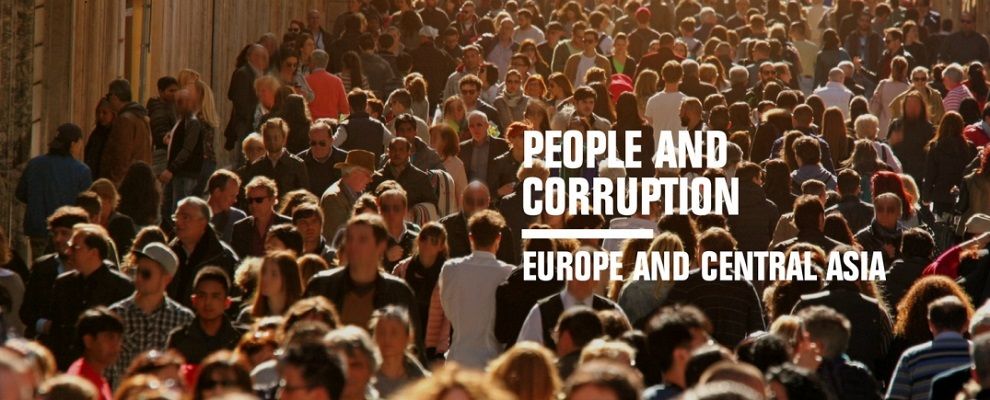Design is a thought activity: we should not replace it with a mere “optimizing” approach, because it’s from imperfections that talent emerges.

One in three citizens think corruption is one of the biggest problems facing their country, about 53% said that their government is doing badly at fighting it; these are just a few data from the report “People and Corruption: Europe and Central Asia”. The study, realised by Transparency International, is the result of surveys and interviews made on a sample of about 60,000 people in 42 countries in Europe and Central Asia.
Relevant differences in attitudes and experiences have also been recorded between the different regions of the concerned area: although few households paid bribes when coming into contact with public services in EU member states, rates were significantly higher further east: the highest rates were in Tajikistan (50%), Moldova (42%), Azerbaijan, the Kyrgyz Republic and Ukraine (38% for each).
“Corruption is a significant problem all across the Europe and Central Asia region. In EU countries many citizens see how the wealthy and those in government distort the system to their advantage”, said José Ugaz, Chair of Transparency International. “Governments are simply not doing enough to tackle corruption because individuals at the top are benefiting. To end this deeply troubling relationship between wealth, power and corruption, governments must require higher levels of transparency, including around who owns and controls companies through public beneficial ownership registries.”
View here the infographics about the report and download the complete document.